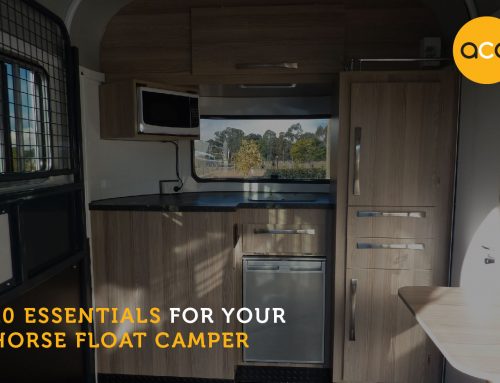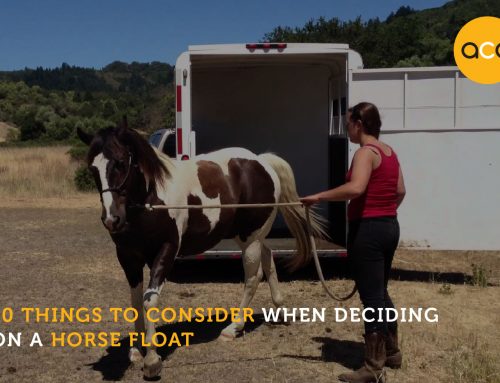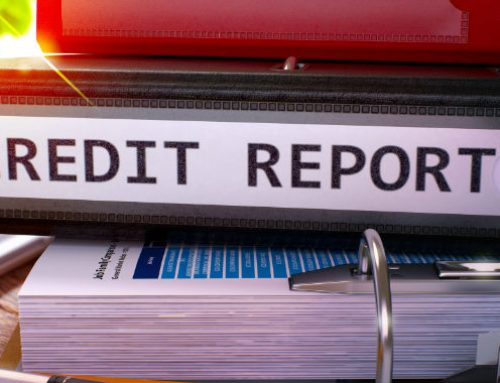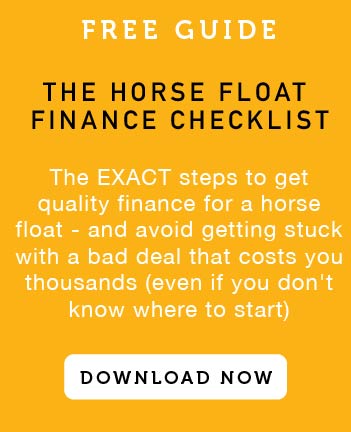Consumer Loan
A Consumer Loan is a convenient and flexible way for an individual to obtain finance to purchase a New or Used vehicle of their choice.
The vehicle is used as security for the loan, however the borrower has ownership from the beginning of the contract. Upon the final payment the borrower gets clear title to the vehicle.
The borrower can make a deposit towards the vehicle purchase to reduce their monthly repayments, however, dependent on the credit profile of the borrower, no deposit may be required at all. A Borrower may also be able finance other costs associated with the vehicle purchase such as Comprehensive Insurance, registration, and on-road costs.
Typical terms of the Consumer Loan range from 12 to 60 months and interest rates are usually fixed. Most institutions provide Borrower’s with convenient payment methods like direct debit and Bpay and payments can be made as frequently as the Borrower likes with limited penalties for early termination.
A Consumer Loan can also be used to finance motorcycles or boats.
Borrowers have peace of mind knowing that their loan is regulated by the Consumer Credit Code.
Benefits of a Consumer Loan
- Preserves the Borrower’s cash and credit facilities. Funds can be used to purchase other assets, invested in income producing assets, or maintained to assist with unexpected expenses.
- Other costs associated with the loan can be financed on the contract such as Comprehensive Insurance, registration and on-road costs.
- Ownership of the vehicle by the borrower
- Payments can be structured to suit the borrower’s budget and cash flow by varying the deposit, term, interest rate and any lump sum payment
- With a fixed interest rate the borrower is protected against the market fluctuations
- Borrower’s can increase the frequency of their payments to reduce the interest charges and the term of the loan
- Borrower’s can choose various payment methods including direct debit, BPAY or coupon books.
- There is no GST on loan payments including any final balloon payment. However, GST may be payable on the purchase price of the vehicle or the other items like insurance.
Business Lease
Benefits of a Finance Lease- Preserves the existing cash and credit facilities of the lessee’s business. Funds can either be invested in more productive areas of their business, or maintained to take advantage of an unexpected business opportunity.
- Specific asset security. The lessee does not have to tie up additional business and/or personal assets.
- 100% financing of the value of the goods.
- Other costs associated with the lease can be financed on the contract such as Comprehensive Insurance, registration and on-road costs.
- Fixed cost contract. A fixed rate and term make for accurate budgeting and also provides a hedge against market fluctuations.
- Lease rentals can be specifically structured to suit the business cash flow.
- Lease rentals, and the associated costs of running the specific asset, are allo
- Finance Leases are off-balance sheet transactions and require minimal business administration.
Residual value is predetermined.
wable tax deductions if the asset is used to generate assessable income.
Finance Lease vs Hire Purchase
The following comparison of features highlights some key differences between finance leasing and hire purchase:
| Finance Lease | Hire Purchase |
|---|---|
| Financier owns the equipment. The Lessee has no right to purchase either during or at the end of the term, although the financier will consider an offer to purchase for the residual value. | Financier owns the equipment during the term of the agreement, with ownership automatically transferring to the Hirer when the final payment is made. |
| 100% of the lease rentals are fully tax deductible provided the vehicle/equipment is used to generate assessable income. | The interest component of the payments and depreciation on the vehicle/equipment are tax deductible provided the equipment is used to generate assessable income. |
| 100% financing. A Lease requires the full value of the goods to be financed. | The Hirer may hire less than the full value of the goods. Deposits are optional and generally not required. |
| Lease rentals are subject to duty and GST in most States and Territories. | Payments and/or the agreement may be subject to duty. Goods are subject to GST. |
| The Lessee indemnifies the financier for the residual value of the vehicle/equipment. | The Hirer has the option to purchase the equipment at any time during the term of the agreement. |
Laws and taxes applicable to these products are subject to change. Each customer should be advised to seek independent advice from their accountant or advisor when assessing these products.
Business Asset / Commercial Hire Purchase
Under a Commercial Hire Purchase, the Hirer contracts to pay hire charges for a fixed period at the end of which the legal title to the property passes to the hirer. Until all the hire charges have been paid, legal title remains with the financier.
The payments of a Hire Purchase can be structured by varying the level of deposit and/or making balloon payments either during or at the end of the Hire Purchase Agreement.
A Hire Purchase provides the Hirer with the ability to purchase the equipment at any time during the term of the agreement.
Unlike a Finance Lease where the full amount of the lease rental is tax deductible, only the interest component of the payments and the depreciation on the goods are tax deductible.
Benefits of a Hire Purchase
- Preserves the existing cash and credit facilities of the Hirer’s business. Funds can either be invested in more productive areas of their business, or maintained to take advantage of an unexpected business opportunity.
- Specific asset security. The Hirer does not have to tie up additional business and/or personal assets.
- Ability to hire less than the total invoice price of the goods by way of deposit
- Other costs associated with the purchase can be financed on the contract such as Comprehensive Insurance, registration and on-road costs.
- Fixed cost contract. A fixed rate and term make for accurate budgeting and also provides a hedge against market fluctuations.
- Hire charges can be specifically structured to suit the business cash flow.
- A larger final payment called a Balloon Payment can be structured to reduce the regular monthly rentals, improving the Hirer’s cash flow and making the vehicle more affordable.
- The interest component of the payments and the depreciation on the goods are tax deductible if the asset is used to generate assessable income.
- Ownership automatically transfers to the Hirer with the final payment.
Similar in nature to this product is the Chattel Mortgage which only differs in that the borrower has ownership of the vehicle from the beginning of the agreement.
Novated Lease
The novated lease product is specifically designed for the financing of motor vehicles included in salary packaging arrangements. It is a tripartite agreement between three parties, a finance company (Lessor), an employee (Lessee) and an employer (Payee).
The individual enjoys the use of a vehicle and the benefits of paying for the car from pre-tax salary.
The employer’s commitment is to accept responsibility for payment of the lease rental under the novated lease, and often the running costs, which would normally be deducted from an employee’s total remuneration package. On completion of the novated lease period or on termination of the employee’s employment, responsibility for the lease reverts to the employee and the employer has no further obligation.
A novated lease may give rise to a fringe benefits tax liability and the Lessee should seek independent advice on this issue from their Accountant.
Benefits to the Employer
- Taxation Benefits – the lease payments and running expenses are generally tax deductible
- No obligation for the vehicle on termination of the employee’s employment
- The lease liability is off balance sheet
- Employment on-cost savings compared with paying the equivalent as a salary
Benefits to the Employee:
- Flexibility in choice and use of a car that may not otherwise have been provided
- Tax effective as payments are made from pre-tax earnings
- Payments can be structured to suit the employee’s needs, budget and cash flow.
- Transportability of the lease on termination of employment
- The ability to have the car used by the employee’s family, dependent on insurance restrictions
- The ability to make an offer for the vehicle at the end of the lease
Master Lease Agreement
A Master Lease Agreement is a bulk limit finance lease facility that allows the lessee to periodically draw down on an agreed facility limit for the use of multiple vehicles and/or pieces of equipment across a period of time.
In line with a finance lease there is a separation of ownership and use of the leased assets. A Master Lease Agreement provides the lessee the right, for a stated period of time, to use the scheduled property owned by the lessor, in return for a series of lease rentals. However, the lessee does not obtain ownership or equity in the property they are leasing and the lessee is responsible for maintenance of the assets and all operating costs.
Benefits of a Master Lease
- One Agreement covers multiple items
- No need to get finance approved every time the lessee requires additional vehicles or equipment
- Parties to a Master Lease only need to sign once.
- Provides flexibility for the lessee.
Fleet Leasing
Many small and medium businesses do not receive the level of service they once enjoyed from their bank. In fact the regular sales call from the bank can be a distant memory for most businesses let alone specific planning sessions centred around their vehicle fleet.
Coordination of fleet leasing arrangements are increasingly being done on a piece meal basis and as a consequence the cost to run a vehicle fleet is not being optimised.
Fleet Leasing services are suitable for businesses with five or more passenger and/or light commercial vehicles.
Both finance lease and operating lease products for suitable for fleet leasing requirements and can incorporate vehicle sourcing, maintenance, management and disposal.
Benefits of Fleet Leasing
- All the benefits of a finance lease are retained
- Improves the Lessee’s vehicle purchasing power
- Assists to minimise the combined cost of lease rentals
- Lease rentals can be consolidated and structured to suit the business cash flow.
- Fleet Leasing facilities often incorporate fleet management features and reporting which simplifies fleet administration.
Personal Loan
A personal loan is a good product to use to assist borrowers obtain finance for general purposes.
Some of the purposes a personal loan may be required for include:
- home renovations
- travel
- wedding expenses
- furniture
- education expenses
- medical expenses
- debt consolidation
Personal Loan advances usually range between $5,000 and $50,000 and are provided on an unsecured basis giving the borrower the flexibility to use the funds at their discretion.
The term of a Personal Loan range from 12 to 60 months and interest rates may be either fixed or variable, and are typically lower than credit card interest rates, making the Personal Loan a cost effective way to borrow.
Most institutions provide Borrower’s with convenient payment methods like direct debit and Bpay and payments can be made as frequently as the Borrower likes with limited penalties for early termination.








